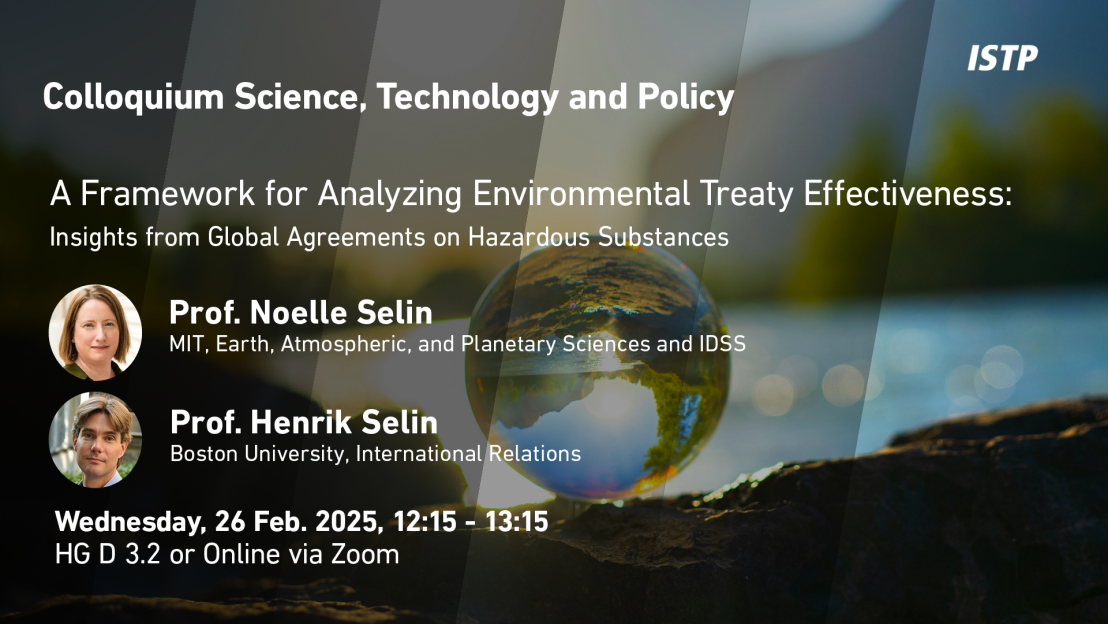Colloquium: Prof. Noelle Selin and Prof. Henrik Selin
Wednesday, February 26, 2025, at 12.15 - 13.15
HG D 3.2 or online, Zoom | Sign up here
A Framework for Analyzing Environmental Treaty Effectiveness: Insights from Global Agreements on Hazardous Substances

Scholars and practitioners have long debated the roles and relevance of international environmental agreements. On the one hand, much effort is expended by states to negotiate new agreements and implement existing ones, with the aim of addressing global issues such as climate change and chemicals pollution in a broader context of efforts towards sustainability. Yet, on the other hand, many have argued that that environmental treaties are not working, largely based on examining specific environmental benchmarks. This raises important questions of how the effectiveness (or lack thereof) of existing environmental treaties are evaluated, and how such evaluations feed into further treaty development. In this presentation, drawing from a book project, we introduce a new four-step analytical framework designed to draw insights from empirical cases on how the parties to treaties carry out effectiveness evaluations. Importantly, we treat the treaty objectives and provisions as multi-dimensional where the measurements of progress (e.g. treaty effectiveness) are deliberate and dynamic processes. These processes are influenced by treaty parties’ interests, which may change over time, as well as the evolution of scientific and technical knowledge. The first step, focusing on agreement, looks at the adoption of the treaty objectives and provisions. The second step, centering on translation, explores how parties select and use indicators for treaty effectiveness evaluations. The third step, looking at attribution, explores how parties use indicators for the purpose of determining whether treaty provisions and implementation actions have led to changes in the indicators. The fourth step, looking at potential reformulation, explores how parties use insights from effectiveness evaluations to adjust treaty objectives and provisions. We apply this analytical framework to examine treaty-based effectiveness evaluations in the four issue areas of stratospheric ozone depletion, climate change, persistent organic pollutants, and mercury. In this presentation, we provide illustrative examples from these four areas as we present the analytical framework and discuss its application. This is an ongoing research project and we welcome feedback on the analytical framework as well as opportunities and constraints in applying it across the four issue areas.